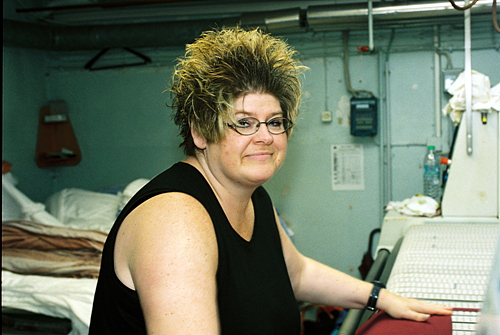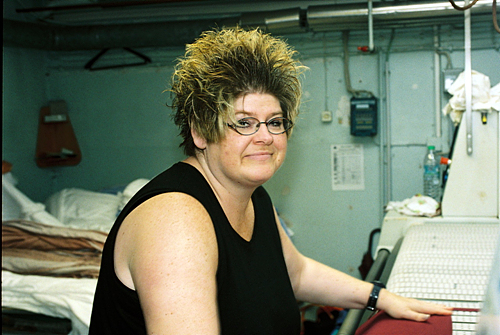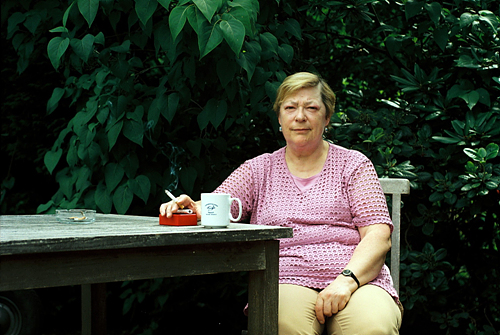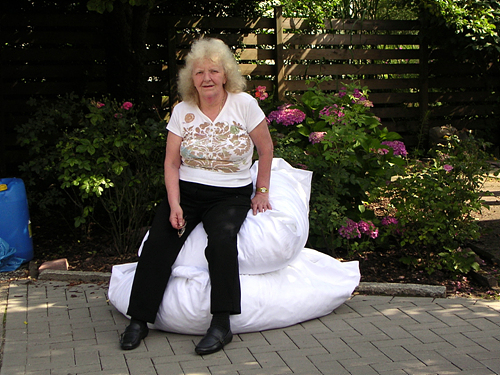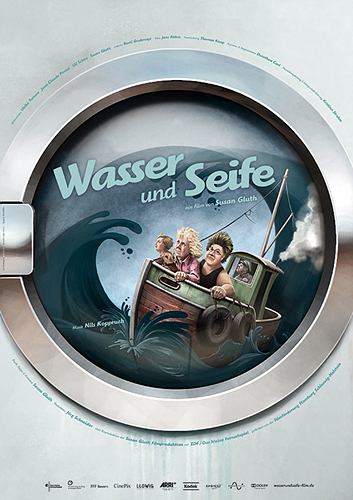11th(2009)
Soap and Water
Susan GLUTH
- Germany
- 2008
- 85min
- Beta, Digi-beta
- color
- Documentary
SYNOPSIS
Three women are slaving away in a laundry in Hamburg. Their wages are low but they cope with their everyday lives with dignity − and find a quantum of happiness from time to time.
The film lovingly nudges these unnoticed heroines of the working world into the limelight. Full of admiration and amazement the viewer participates in the everyday routine of these three hard-working women who, like countless others who labor at the bottom end of our society, engage in the daily struggle to make ends meet.
Early every morning, three middle-aged women go to work at a laundry in Hamburg. When the laundry opens for business, a gigantic washer is turned on and spins; water constantly runs through pipes while scorching steam spurts out. As the cleaning process picks up speed, the three women move even faster. Their hard work never ends. They can barely make ends meet with the paycheck they get. The reality of neoliberal capitalism which is alluded to in Korea with the phrase, “the 880,000 won generation”, affects women in First World countries as much as it does those in other countries. The women work hard but nothing around them seems to change for the better. They have to count every penny to buy basic necessities; they even have to cut down on food to save money. They all lead a hard life and dream of a brand new one. Monika says she would rather save 60cents for bread than spend it on a newspaper. Still, she doesn’t mind spending money on lotto tickets every week. Tatjana wishes that her husband’s work would get better. Tatjana wishes that her sister would find a job so that she could have a comfortable life. Still she is well aware that living an idle life and spending money without worries is simply not possible. Manual labor is inevitable and the brief breaks that they are sometimes able to enjoy make their work worthwhile. Susan Gluth, the director, meticulously portrays the lives of ordinary yet strong women who are not conquered by the force of capitalism. (Amy LEE)
PROGRAM NOTE
Synopsis
Three women are slaving away in a laundry in Hamburg. Their wages are low but they cope with their everyday lives with dignity − and find a quantum of happiness from time to time.
The film lovingly nudges these unnoticed heroines of the working world into the limelight. Full of admiration and amazement the viewer participates in the everyday routine of these three hard-working women who, like countless others who labor at the bottom end of our society, engage in the daily struggle to make ends meet.
Program Note
Early every morning, three middle-aged women go to work at a laundry in Hamburg. When the laundry opens for business, a gigantic washer is turned on and spins; water constantly runs through pipes while scorching steam spurts out. As the cleaning process picks up speed, the three women move even faster. Their hard work never ends. They can barely make ends meet with the paycheck they get. The reality of neoliberal capitalism which is alluded to in Korea with the phrase, “the 880,000 won generation”, affects women in First World countries as much as it does those in other countries. The women work hard but nothing around them seems to change for the better. They have to count every penny to buy basic necessities; they even have to cut down on food to save money. They all lead a hard life and dream of a brand new one. Monika says she would rather save 60cents for bread than spend it on a newspaper. Still, she doesn’t mind spending money on lotto tickets every week. Tatjana wishes that her husband’s work would get better. Tatjana wishes that her sister would find a job so that she could have a comfortable life. Still she is well aware that living an idle life and spending money without worries is simply not possible. Manual labor is inevitable and the brief breaks that they are sometimes able to enjoy make their work worthwhile. Susan Gluth, the director, meticulously portrays the lives of ordinary yet strong women who are not conquered by the force of capitalism. (Amy LEE)
Director
-
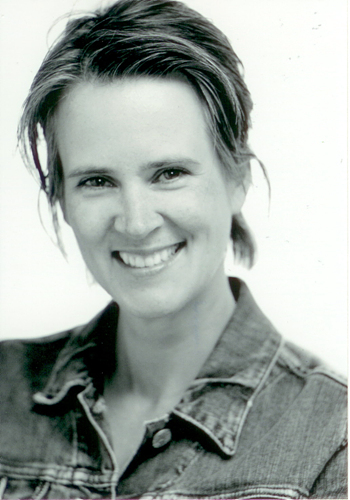
Susan GLUTHSusan GLUTH
Born in 1968, Hanmburg, Germany. Worked as an photo assistant for advertising/fashion/beauty photography in Hamburg and Paris since 1990. She studied documentary film production and television publicity at the Academy for Film and Television in Munich since 1995. Since 2003, a filmmaker, freelance camera-person and production company for documentary films cruising round the world (so far): Mexico, China, Japan, Israel, Senegal, etc.
Credit
- ProducerSusan GULTH
- Cinematography Susan GULTH
- Editor Ulike TORTORA, Uli SCHÖN
- Music Nils KOPPRUCH
- Sound Jens RÖHM

